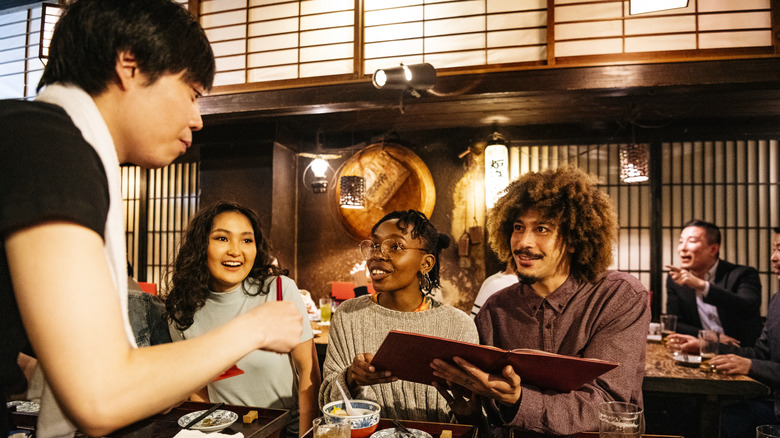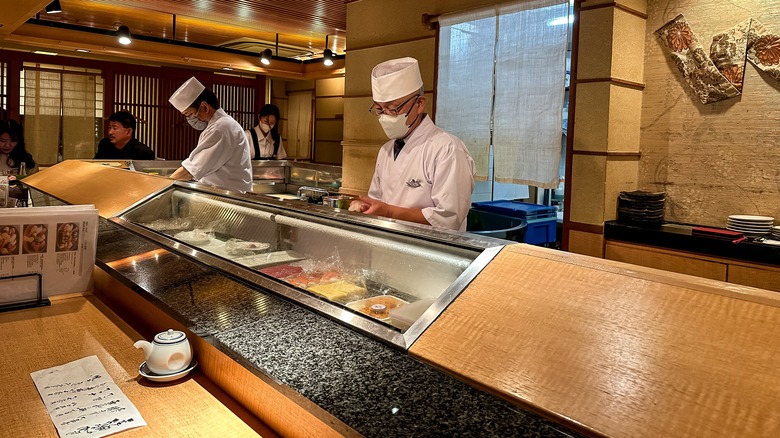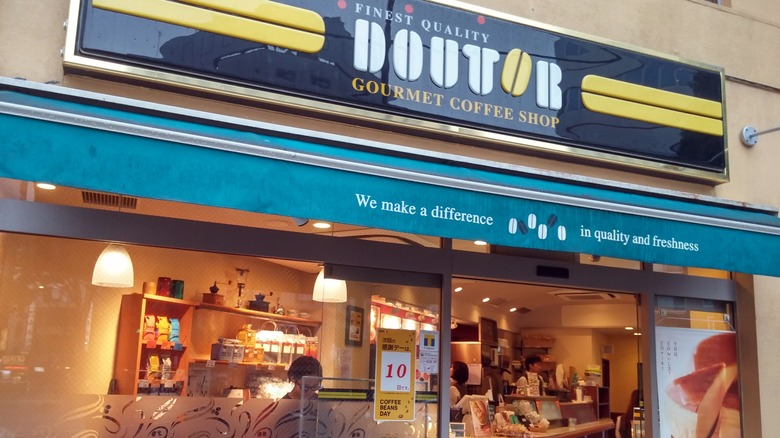Are Restaurant Substitution Requests Rude In Japan? Here's What Tourists Should Know
Dining etiquette in Japan is a little different from what you might be used to elsewhere, particularly if you're accustomed to making substitutions when ordering. When the best way to order food in Japan is often seen as rude in America, it raises the question of what happens when the situation is reversed. Living in Tokyo, I've encountered some restaurants where there's a "set menu" mentality, and I mean that in two ways. First, the meals come as a set, and second, they're almost set in stone. That means the menu items are bundled together, and you're locked into a package deal with whatever they include.
Substituting an item of equal value for one you dislike (coffee for Coca-Cola products, let's say) might not always work. Moreover, when there's already a language barrier with your server, it could come across as rude if you're insistent about customizing the menu and conforming it to your personal expectations. This is especially true when you're dealing with a society that's more collectivist than individualistic.
Some Japanese restaurants could give foreigners the benefit of the doubt, assuming they don't know any better about making picky requests. Yet having a peanut allergy, being a vegetarian or vegan, or abstaining from beef or pork for religious purposes are all perfectly valid reasons why you may need to open that can of worms. More often than not, what you might find in Japan is that it's easier to modify a menu selection by subtracting rather than substituting.
Last-minute omakase requests could be disrespectful
Tokyo is the city with the most Michelin-starred restaurants in the world, and many of them offer an omakase, or chef's choice, dining experience. This means you just sit down and eat whatever the chef serves you, trusting in their refined culinary judgment. With high-end restaurants, such as Ginza's Sushi Yoshitake, they may spend all day preparing for one or two dinner seatings, first by picking out the freshest seasonal ingredients from the local fish market. After a hard day's preparation, some might regard it as a sign of disrespect or ignorance if you just plop down and spring a last-minute substitution request on them.
This is why it's advisable to alert the restaurant upfront about any allergies or special requests you might have. In 2024, Chef Nozumu Abe — a native of Hokkaido, Japan, who now runs the two-starred Sushi Noz in New York — told the Michelin Guide, "Communicate dietary restrictions when you book your reservation. Omakase menus are highly seasonal, with ingredients carefully sourced to match the exact number of counter seats. Substitutions are therefore highly limited and must be planned in advance."
Other omakase-style restaurants may elicit allergy information, then do the substituting for you. When I sidled up to the counter at Yakitori Omino, a one-Michelin-starred chicken skewer restaurant near Tokyo Skytree, one of the first things they asked was if I had any allergies. It was still chef's choice, but they were ready to improvise a tasting course based on customer needs.
Ask politely for modifications when dining casual
In my experience, modifying a dish that's made-to-order isn't usually a problem at more casual dining establishments in Japan. If you're not wild about having corn on teriyaki chicken pizza, for instance, there's a sub-menu where you can remove toppings like that when ordering online from Pizza-La, the popular Japan-only pizza chain. If it's a dish that's pre-made, however, that might be different, as my wife found out last year when she was pregnant and dealing with more dietary restrictions. At table-service restaurants like Obon de Gohan — which advertises its Japanese set meals as well-balanced — there were cases where they couldn't accommodate special requests, so she just had to go with a different menu item.
That said, before writing this, I ordered us takeout from our local Doutor, a Japanese coffee chain with almost 1,300 locations nationwide. I wanted to order one of their 45th-anniversary Milano sandwiches without the raw onions shown in the picture. All I had to do was ask, "Tamanegi nashi wa dekimasu ka?" ("Can you make it without onions?") The staff said they could do it, but then they checked to make sure it was okay that our other sandwich had onions already mixed in with the tuna salad.
When in doubt, it doesn't hurt to ask politely. Use Google Translate when traveling abroad, and you can substitute different Japanese words with the sentence pattern above. For example, "Oriibu nashi wa dekimasu ka?" ("Can you make it without olives?")


